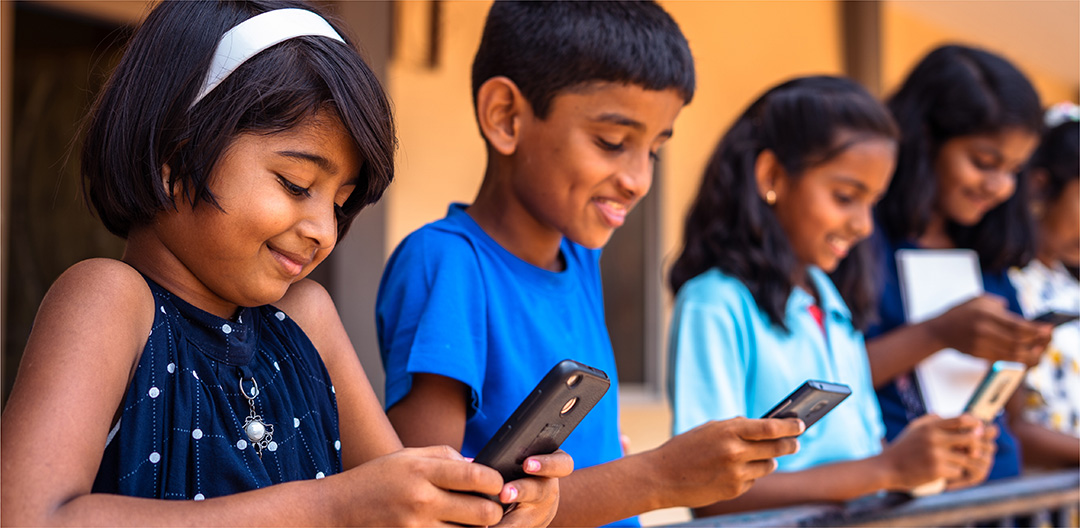![]()
In today’s digital age, social media has become a significant part of our lives. While it offers many benefits, students must navigate these platforms responsibly to ensure their safety and well-being. Here are some crucial social media safety tips to help you stay safe online:
Understanding Social Media: Social media platforms can be a fun way to connect with friends, share our experiences, and access a wealth of information. However, they also come with potential risks. Hence, it is crucial to understand the impact they can have on our lives. Cyberbullying, exposure to inappropriate content, and privacy breaches are some of the dangers students may encounter. It can impact our self-esteem and mental health as well. It’s essential to be aware of these risks and protect yourself.
Social Media Safety Tips:
1. Keep a reality check: One important aspect to consider is the comparison trap! It is essential for students to remember that what they see on social media is not always a true reflection of reality. It is important to be discerning and not readily accept everything that is presented. This entails challenging the information’s source, determining its reliability, and taking into account various viewpoints.
2. Think Before You Post: Before sharing anything online, take a moment to consider the potential consequences. Remember that once something is posted online, it can be challenging to remove it entirely. It can impact your future including college admissions, job opportunities, and personal relationships.
3. Adjust Your Privacy Settings: It is important to maintain a safe and secure online presence. By adjusting your privacy settings, you can control who can see your posts and personal information. Limiting your audience to trusted friends and family members can help protect your privacy. Take the time to review and adjust the privacy settings on different platforms.
4. Be Mindful of Your Online Friends: Be cautious when accepting friend requests or following accounts. Connect only with people you know and trust. Regularlyy revieweingfriend and followers list can help remove suspicios individuals.
5. Report Inappropriate Content: If you encounter content that is offensive, inappropriate, or uncomfortable, report it to the platform’s administrators. Don’t hesitate to seek help if you need it.
6. Limit Your Screen Time: It is easy to get caught up in the constant scrolling, notifications, and the pressure to maintain an online presence. Spending too much time on social media can negatively affect your mental health and well-being. Setting boundaries for yourself and taking regular breaks from your devices is required to ensure healthy balance between reel and real life. This can involve using built-in screen time tracking features on smartphones or setting specific time intervals for social media use. By doing this, one can regain control over online activities and allocate time for other important aspects of life, such as studying, hobbies, or spending time with loved ones.
Cyberbullying Prevention:
Cyberbullying is a severe issue that can have harmful effects on its victims. Any bullying or harassment that takes place online, including sending nasty messages, starting rumours, or making disparaging comments, is referred to as cyberbullying. It is essential to be aware of the risks and take proactive steps to prevent cyberbullying:
1. Be Kind Online: Treat others with kindness, respect, and empathy. Avoid engaging in or perpetuating negative behaviour online.
2. Stand Up Against Bullying: If you witness cyberbullying, don’t be a bystander. Speak up and offer support to the person being targeted. Let them know that they’re not alone. This way students can create a safer and more inclusive online community
3. Seek Help if You’re Targeted: If you experience cyberbullying, don’t hesitate to reach out to a trusted adult (family member or school counsellor) for support. They can help you navigate the situation and take appropriate action.
Protecting Your Privacy Online with these tips:
- Review Privacy Policies: Take the time to review the privacy policies of the social media platforms you use. Understand how your data is collected, stored, and shared.
- Use Strong Passwords: Create strong, unique passwords for your social media accounts, and avoid sharing them with anyone else. Regularly update your passwords to help keep your accounts secure.
- Think Before You Share: Be cautious about sharing personal details such as full name, address, phone number, school name, parents’ contact, or work details. This information can be used by strangers with malicious intent. Share information only with trusted individuals, and avoid posting sensitive details publicly.
Cyber Safety Tips for Parents and Teachers:
1. Keep open Communication: Maintain open and honest communication with your children about their online activities and experiences. Don’t hesitate to seek help or guidance if the child encounters problems or concerns.
2. Educate yourself: Stay informed about the latest trends and issues related to social media and online safety. Take advantage of the resources and workshops the school or community offers to learn more about staying safe online. Fact-checking is an essential skill that we should encourage children to develop. This involves cross-referencing information with reliable sources, such as news websites, academic journals, or reputable organisations.
3. Monitor Online Activity: Monitor children’s online activity and be vigilant for signs of cyberbullying or other online risks. Children should be encouraged to report concerns and provide support and guidance as needed. One should develop the habit of verifying information and fact-checking before accepting it as true.
By following these social media safety tips and cyberbullying prevention strategies, students can enjoy the benefits of social media while minimising the risks. Remember to stay safe, be kind, and use social media responsibly.
Sources:
Check out the recording of our webinar on digital overexposure in children- understanding the impact and strategies for balance: https://youtu.be/RPUTRuFSIhk.
